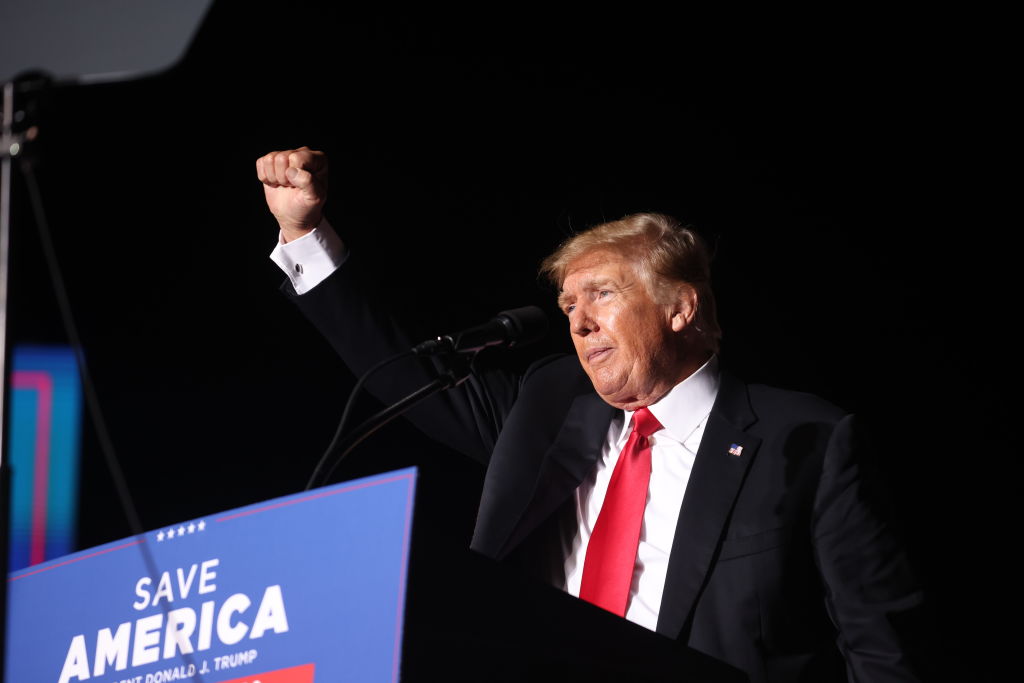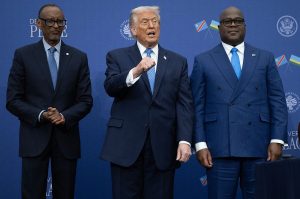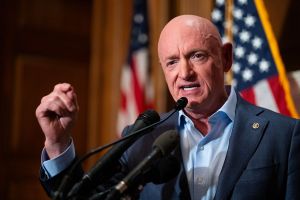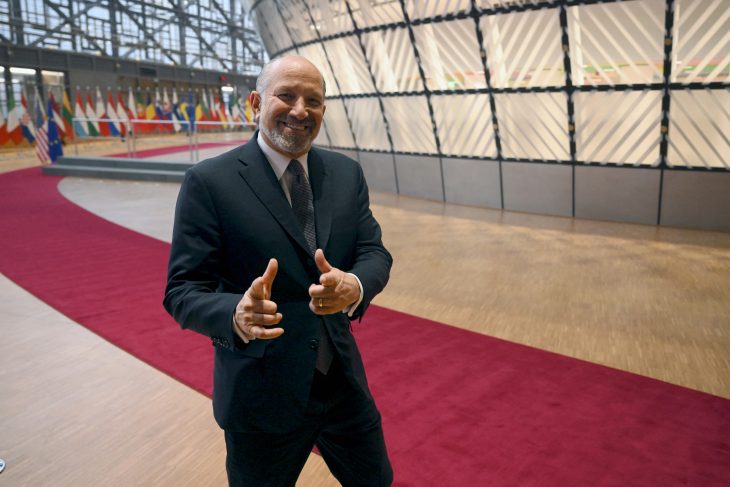“I know Vladimir Putin very well,” said Donald Trump yesterday, speaking of the Ukraine crisis, “he would have never done during the Trump administration what he is doing now.” As with a lot of Trump utterances, that statement is at once arrogant, preposterous — and probably true.
Maybe it is a coincidence — or Trump’s often-cited luck — that the last major crisis over Ukraine was back in 2014, after Viktor Yanukovych was ousted and Putin annexed Crimea. Or perhaps not.
Back then Barack Obama led the free world and, busy as he was, he offloaded the knotty Ukraine problem on to his Vice President Joe Biden, which I wrote about here yesterday.
In the years since, we’ve heard a lot about Russia’s further expansionist aims in the Donbas, Ukraine, and even the NATO Baltic states. But it is only now, one year into Joe Biden’s presidency, that Putin has made his first significant move since that annexation of Crimea.
In the Trump years, for all the talk of America’s Commander-in-Chief being Putin’s puppet, Russia more or less behaved itself. In public, at least, Putin tolerated the Minsk II accords, signed in 2015 following negotiations between Russia, Belarus, France, Germany and Ukraine.
Moscow appeared to have a different understanding to the rest of the world as to what the Minsk agreements actually meant. For Ukraine and the West, the accords meant that Russia accepted Ukrainian sovereignty in the Donbas though with certain devolved powers to Luhansk and Donetsk. Russia on the other hand always saw the accords as more of a guarantee of the Russia-aligned status of those two regions.
Perhaps it was this ambiguity in the Minsk accords that meant the Ukrainian situation, while hardly stable, did not boil into a potential international conflict between 2015 and 2022.
Or perhaps it was something to do with Donald Trump being in the White House from January 2017 to January 2021. “Russiagate” theorists will continue to tell you that Trump’s Moscow ties are deeper and more twisted than the exhaustive Mueller inquiry managed to reveal, and that if Putin behaved himself in Ukraine it was because he was getting what he wanted elsewhere, perhaps in the Middle East or something.
A simpler explanation is more likely. Putin, as a slightly comic alpha male authoritarian, saw in Trump something he recognized — an unstable, unpredictable yet potentially decisive actor on the world stage. Rightly or wrongly, he saw in Trump strength whereas in the Democratic leadership he sees only weakness and folly.
Trump also pointed out yesterday that, under his leadership, oil prices stayed low which helped limit Putin’s ability to act. Quite how much credit Trump can take for that is a matter for debate. But it’s reasonable to say that Biden’s ultra-green Build Back Better agenda has so far been much better news for global oil and gas investments than Donald Trump’s administration ever was. As Trump, always with dollar signs in his mind, pointed out yesterday “Putin is not only getting what he wanted, but getting, because of the oil and gas surge, richer and richer.”
In its demented ego-driven way, Trump’s view of the way the world works is intriguingly coherent. And painful though it may be for the many experts who have spent years denouncing him as a disastrous monster to admit, he could well be right: if he were in the White House, Putin probably wouldn’t be doing what he is doing.
This article was originally published on The Spectator’s UK website.

























